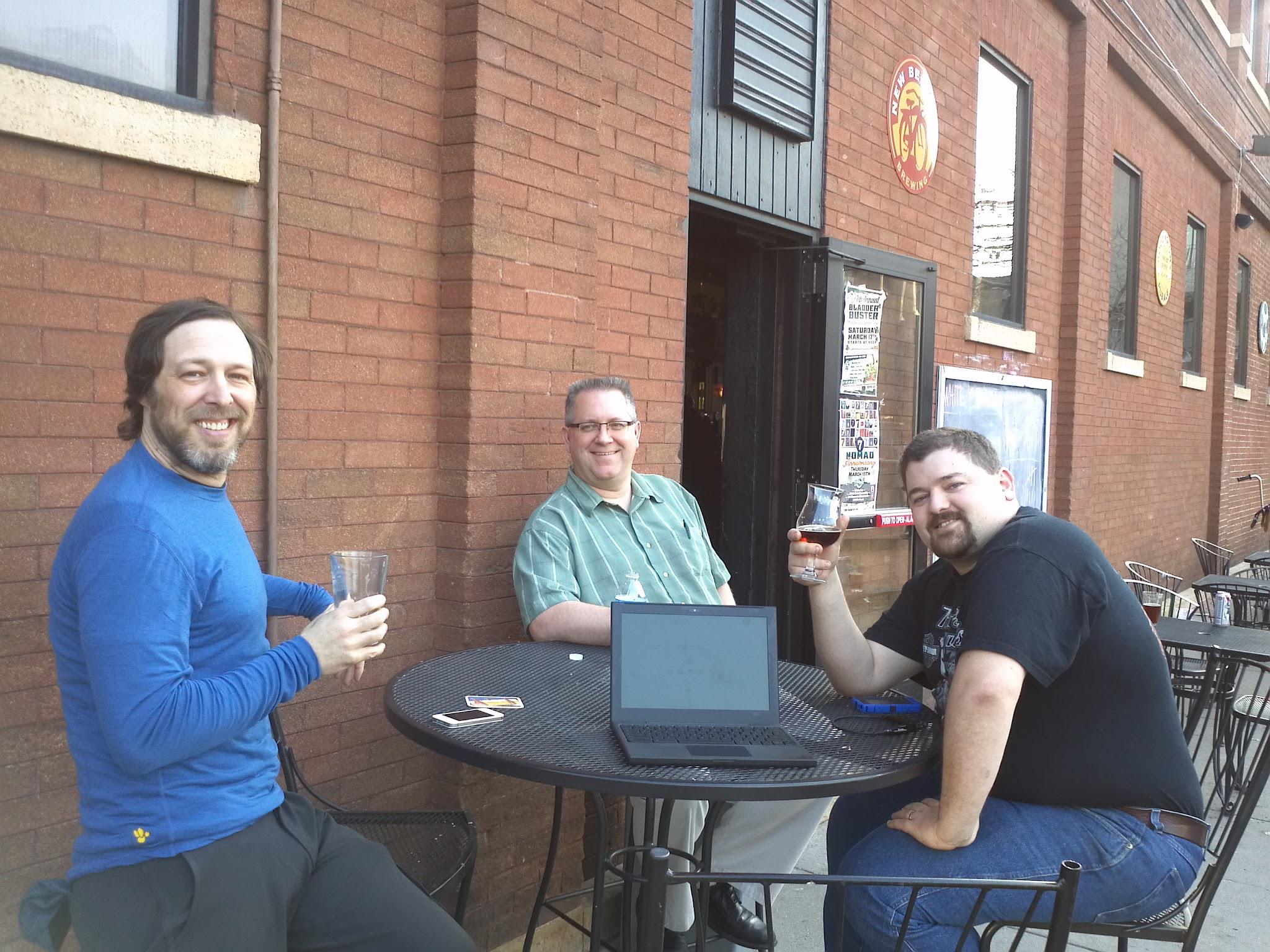Every morning we wake up, watch, listen to, or read the news only to find that the discourse in our country has devolved into something that most of us can no longer stomach. We cannot seem to have a debate without most of it revolving around assigning blame. How does a nation designed and built for civil discourse arrive at this place? What does this have to do with beer and alcoholic beverages in general or the lack there of? The United States was built in bars, taverns and breweries. It was alcohol (mostly beer) that relaxed the thinkers of the Enlightenment enough to spur the creativity and courage to invent the concept of liberty. The founders of this nation took that concept to a new and dangerous level.
The idea of liberty was conceived in the coffee houses and salons of Europe in the 17th and 18th centuries. Locke, Rousseau, Montesquieu, and Voltaire were not just drinking coffee, tea, and water as they penned the discourses that would usher us into the modern world. The convivial, collaborative atmospheres that they wrote in were fueled in most cases by beer and wine. Since these ideas were not popular with the monarchical governments of the era alcohol provided no small amount of liquid courage as well. The philosophical heirs to this tradition, Ben Franklin and Joseph Priestly, spent their evenings in London coffee houses exploring the practical impacts of a society based on personal freedom while imbibing porter-Franklin’s ale of choice. Franklin also had many people of similar mind in his native land of Britain’s American colonies.
The Americans who would eventually found our nation gathered in their local taverns and over a few local ales eventually let their rebellious ideas fly. Key among them was Samuel Adams, a maltster by trade, who was known to buy rounds of drinks to encourage people to talk. In many ways social drinking allow the United States to come into being. So then, how did we get from a nation founded on convivial, social drinking to one where drinking and politics become far less social? That change mostly occurred during an era referred to as Prohibition.
Since the Volstead Act of 1919 prohibited the sale, manufacture, and transportation of alcohol Americans were forced into their homes if they wanted a drink. After Prohibition ended people continued this tradition of drinking in their homes and the remaining breweries were eager to comply. In the second half of the 20th century American breweries would continue to drive their product towards home consumption. Beer became a product to be consumed at home in front of the television, not among friends and neighbors.
With the rise of the interstate system beer could be easily transported across the country allowing the large brewers to become giants and these giants only cared about profits not community. The interstate system also helped spur the move out of cities into suburbia. Suburbs became increasingly spread out forcing Americans to drive to get groceries, beer, or even go to a tavern if that suburb had one. Americans learned slowly but surely that beer and cars were not a great mix so we had one more reason to drink at home. We have become more and more personally disconnected, no longer do most of us live in close knit communities. Instead of walking down to the local tavern to have a beer (or five) with our neighbors over a few hours we exchange 140 character notes. I for one have difficult elaborating on an idea in 140 characters.
Beer is unique among alcoholic beverages because a person can have a few and become more social without becoming drunk. That second drink seems to relax people just enough to let their guard down for an honest, even open-minded discussion. It seems to be more difficult to find a place where a person can have a beer or two and find themselves becoming friends with the stranger on the barstool next to them, who may only live blocks away. Though recently something momentous has occurred locally in Minnesota. We have rediscovered the neighborhood bar, especially the taproom.
With the 4th of July rapidly approaching we should remember the sense of community that our founders used to make this nation great. The people who founded our country bravely drank a few beers and risked their lives to give us a place where freedom of thought and debate was encouraged. This 4th of July shut off your electronics and walk to your local taproom, tavern, or at least walk down the street and invite your neighbor over for a beer. Isn’t it time we disconnected our toys and reconnected face to face with a couple of beers so the conversation can become civil again?


